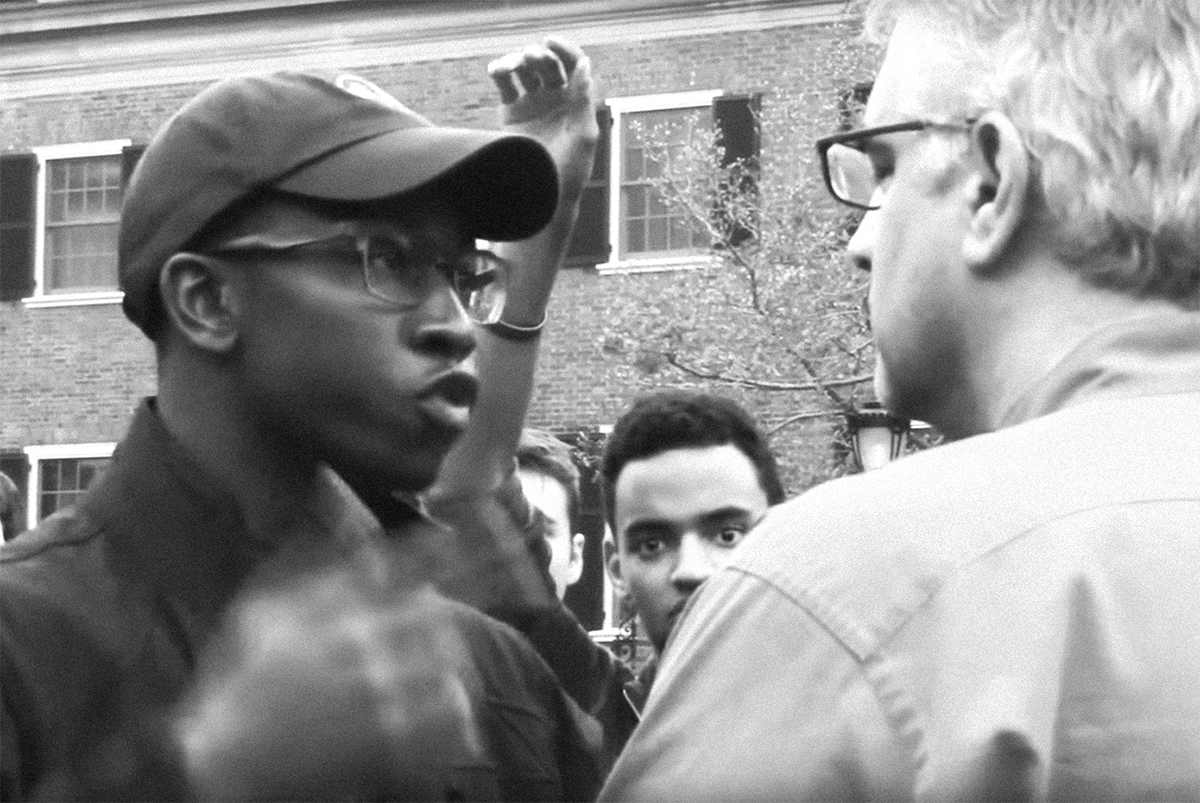Education
Reflections on the Revolution at Yale
Yale cannot help but indulge the claims—no matter how overblown—levelled against it by activists.

Three years ago this Fall, Yale University descended into what can only be described as a fit of mass psychosis.
On November 9, 2015, over 1,000 people—about one fifth of the undergraduate student body—walked out of classrooms and into the quad to participate in a ‘March of Resilience.’ An a cappella group led the crowd in a medley of “We Shall Overcome.” Native Indian performers formed a drum circle. “We are not victims,” a student organizer affiliated with the school’s Latino cultural center declared. “Today, we are on our way to being victors.”
Against what sinister forces did Yale’s students feel compelled to summon up their stocks of ‘resilience’ in righteous battle? The first grievance cited by the student protestors was an alleged ‘white girls only’ party thrown by one of the university’s fraternities. Word of this event had gone from a Facebook post to international headlines, tarnishing Yale’s good name in the process. Had such a party actually taken place, it indeed would have been cause for protest. But it’s hard not to be skeptical about this sort of thing, as many ofthem turn out to be hoaxes, often perpetrated by the very people claiming offense.
Which is exactly what an investigation by the Yale College Dean’s Office determined a month later, finding “no evidence of systematic discrimination against people of color” at said ‘white girls only’ party. The Dean did, however, fault the brothers of Sigma Alpha Epsilon for “creat[ing] a chaotic environment,” demonstrating “little regard to crowd control and overcrowding inside the house” and “behavior” that “fell short of the community standards and the kind of civic engagement that I have sought to promote.” He found them guilty, in other words, of being frat brothers.
The second supposed incident of racial injustice involved an email sent by a professor, Erika Christakis, questioning an administrative warning to students regarding Halloween costumes that perpetrate ‘cultural appropriation.’ Because Christakis had suggested that young adults should be able to make their own decisions about masks and capes, a mob of students, faculty, and deans demanded that Yale remove Christakis and her husband, fellow professor Nicholas, from their positions as residential advisors. During a two-hour, outdoor harangue of Nicholas, captured on a video that went viral, students yelled, cursed, and physically intimidated him as four Yale deans and administrators watched impassively.
The infamous Yale video was not taken out of context; here's the context. Christakis has the patience of a saint: https://t.co/fb34UggoXR
— Jonathan Haidt (@JonHaidt) September 15, 2016
While the university did not succumb to demands that the couple be sacked, the administration essentially sent the message that sided it with the students. Two weeks after the ‘March of Resilience,’ the administration announced a doubling of budgets for the various (African-American, Latino, Native American etc.) cultural centers, racial sensitivity training for faculty and administrators, and the creation of the Center for the Study of Race, Indigeneity, and Transnational Migration (which has since become the institutional home of the postmodern cultural studies journal Social Text, known primarily for its embarrassing role in the Sokal hoax). This diversity-budget bloat is part of a larger trend. And it has coincided, not coincidentally, with a doubling of tuition since the time I was a Yale freshman 15 years ago. As for the students who mobbed Nicholas Christakis, not only did the University (disregarding its own undergraduate regulations) conclude that their behavior fell short of grounds for disciplinary action, it rewarded two of them with prestigious class prizes upon graduation in 2017.

Fast-forward to this past May, when a white, female graduate student called the Yale Police Department (YPD) upon discovering a black woman sleeping in a dormitory common room. When the police arrived and asked the suddenly awakened, and understandably annoyed, woman for her identification, as is standard practice, she showed them a Yale ID card. Her name on the card, however, did not match the one in Yale’s database. Following a tense exchange with a (black) YPD sergeant, the confusion was soon resolved, with the Yale police admonishing the white student that her black peer had as much a right to be in the common room as she.
It is of course humiliating for a student to have the campus police called on them for, apparently, no other reason except her skin color. And if racial bias really was the reason why the complainant called the Yale police, it would fit into an all-too-common national pattern. But as far as Yale is concerned, what this episode revealed was the racial prejudice of one, rather eccentric, 43-year-old, perpetual graduate student, who, upon seeing a black person sleeping in a common space, erroneously assumed she was trespassing. What it did not reveal was “institutional racism,” either on the part of the YPD, which was merely following procedure, or the university.
This is more or less what the university leadership should have said, and left it at that. But having effectively affixed a giant ‘Kick Me’ sign to its back three years ago, Yale cannot help but indulge the claims—no matter how overblown—leveled against it by activists. No doubt terrified that he would have another campus-wide protest on his hands, Yale President Peter Salovey sent an email to the entire school community two days after the incident took place, declaring, “we must neither condone nor excuse racism, prejudice, or discrimination at Yale,” and calling upon students, faculty, and staff “to reflect in new ways on the ordinary daily actions each of us can take to…combat hate and exclusion.”
But that wasn’t it. Last month, Salovey emailed the Yale community again to report on “a working group of faculty and staff” that “met bi-weekly throughout the summer and will continue to meet to evaluate short and long-term actions” to redress the climate of racism, prejudice and discrimination that supposedly pervades the New Haven campus. Among the working group’s proposals, which the University has adopted, will be “training for all incoming graduate students on implicit bias awareness,” “a new video on discrimination and harassment resources” to be “shared with all incoming students beginning this fall,” and “additional training for relevant faculty and staff…to ensure that all those who work with students understand university policy and procedures.” This added layer of training, mind you, “complements a multitude of training programs already in place in Yale College and the graduate and professional schools.”

It would be nice to have university leaders whose instinct, upon being confronted with baseless accusations that their school is suffused with racism, would be to defend the institution’s good name, not bow and capitulate. There are, no doubt, racist people at Yale, just as there are racist people everywhere. But there is no reason to believe—and, indeed, very much reason to doubt—that Yale is any more racist than the country at large (unless one takes into account its potential discrimination against Asians, which the university has implicitly acknowledged by signing onto an amicus brief defending Harvard’s allegedly anti-Asian undergraduate admissions policy).
That Yale does not, presently, have leaders willing to speak plainly to such attacks is one of the reasons I am now mounting a petition candidacy to join the university’s board of trustees (formally known as The Yale Corporation). The school’s reluctance to defend free speech, as evidenced by its shameful behavior in the Christakis episode, is another.
Such bodies play a fundamental role in governing schools, furthering their mission, and shaping their future. Thus far, my campaign has earned endorsements from a wide and politically heterogeneous array of Yale alumni—including former Democratic Governor of Alaska Tony Knowles, former Independent Senator from Connecticut Joe Lieberman, former Republican Attorneys General Ed Meese and Michael Mukasey, the democratic socialist former Yale professor and bestselling author of Excellent Sheep William Deresiewicz, and social psychologist Jonathan Haidt.
If elected, I intend to use my position on the Yale board of trustees to defend free speech and other Enlightenment values from those members of the university community who are either hostile or indifferent to the tenets of classical liberalism. Those who wish to know more about my candidacy, or assist in my effort, can find information at the web site linked below.






